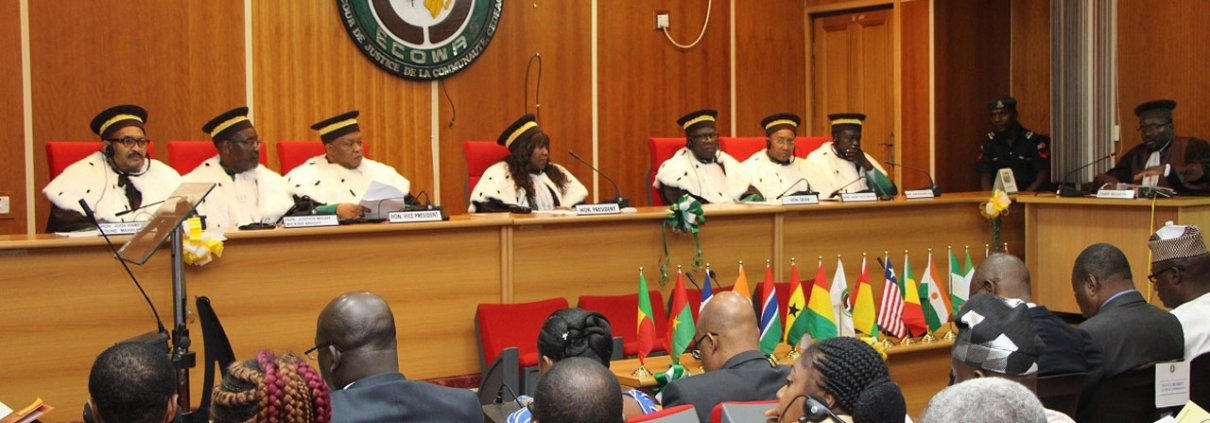‘ECOWAS court of justice, sustainable platform for human rights’
A former Judge of the Community Court of Justice, Economic Community of West African States (ECOWAS), Prof. Friday Chijioke Nwoke has stated that the institution’s court of justice remains a viable alternative platform for the judicial protection of human rights.
Prof. Nwoke who was the guest speaker at the 17th Justice Idigbe memorial lecture recently spoke on the title: “Alternative Platform for the Protection of Human Rights in the West African Sub-Region: ECOWAS Court in Perspective.”
He stressed that the ECOWAS Community Court has a wider range of powers and is not hindered by the issue of non-domestication, which affects the legal system of many Member State in their dispensation of justice.
According to him, the ECOWAS Community Court of Justice since creation of its human rights mandate had been an alternative platform for the protection of human rights in the West African Sub-Region.
Prof. Nwoke added that unlike the National Courts of many Member States of the Community who cannot entertain socio-economic rights contained in international instruments on account of non-domestication, the Court deals with the enforcement of political, social-economic and cultural rights, provided that a Member State is party to such international Human Rights Instrument.
He noted that the Court has continued to recognize the individual as an independent subject of international human rights law despite several objections by Member States, adding that in the region, each state has distinct laws, which are enforceable within each State. This diversity poses challenges when issues arise between members from different States.
As regards the quest for regional integration, Prof. Nwoke claimed that the Court has an important role to play in harmonizing human rights jurisprudence throughout the region, noting that in future an appellate division of the Court would be created to consolidate the gains so far made by the Court in the protection of the rights of the citizens of the Community to further strengthen the confidence of parties in the capacity of the Court to do substantial justice to the individual members, states and the community as a whole.
He said: “As a result of poor human rights record as well as lack of judicial independence in some Member States of the Community, many victims of human rights violation have turned to the ECOWAS Community Court of Justice for solace.
“The jurisprudence of the Court has shown that it has broken down the traditional human rights limitations contained in the constitutional law of Member States. The absence of the requirement of the exhaustion of the local remedies has enabled it to determine human rights cases brought before it expeditiously.”

